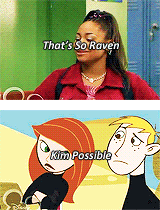studentlifeposts-blog1
Best education ,student life , best life,best university
69 posts
Latest Posts by studentlifeposts-blog1
IT infrastructure in schools: outsource or keep in house?
Autonomous schools are interesting, dynamic clients of IT. They are quick to draw in new students, regardless of the fact that they appreciate a long holding up rundown, and to do this they should exhibit upper hand as far as instructive accomplishment as well as in the offices on offer also.
Generally this is in zones, for example, games, music and human expressions together with convenience (for staff and students), support and future improvement. Yet, we can no more overlook IT in this blend.
Whether this is measured by the school's utilization of remote innovation, instructive conveyance, security or control of web access or basically the visual appearance of huge screens showing the most recent games exercises or occasions for the following two weeks, it doesn't make a difference.
The truth of the matter is that IT has substantial influence in the discussions given to imminent guardians as they visit your school and an old portable PC or 15" screen will surely leave the wrong impression.
Developing parental accentuation on IT ought not be an astonishment – it now straightforwardly influences the way we work, convey and play and to be focused later on, kids must be capable with IT from a youthful age. It is thusly basic that not just is the IT procurement inside a school adequately hearty to adapt to the requests put on it however that the staff supporting and keeping up it are correspondingly skilled.
In this way, here are some focuses to consider while evaluating whether on location faculty or outsourced training IT backing would serve your school better:
Need: Nearly every school must have somebody in charge of their IT framework. When would it be a good idea for it to be an expert?
Enrollment: Hiring IT staff can frequently be clumsy as the questioners are regularly off guard as far as learning or over dependent on basic impulses
Esteem for cash: Most schools have an IT cost line in their present and vital spending plans. In any case, might it be able to go further?
Obligation: The IT buck stops with the Bursar . from educationstate
Teaching Skills, Not Just Content
Shira Lurie is a PhD hopeful in Early American History at the University of Virginia. Her exploration concentrates on well known political clashes over the American Revolution's legacy in the early republic. You can tail her on Twitter and on her site.
This year I TAed a course on the historical backdrop of Colonial British America for the most part non-history majors. A few understudies were there out of general interest, yet numerous were utilizing the course to satisfy a circulation necessity. While I positively trust that the investigation of history is imperative for everybody, I likewise needed my understudies to see the class as by and by advantageous and, most importantly, helpful for their prospects. I think this is one of the more subtle, yet noteworthy difficulties in post-optional educating: it is regularly the case that the greater part of understudies we instruct won't seek after professions in our field. We likewise know, likely from direct experience, that post-exam cerebrum channel is a fight no instructor can completely win. As TAs, our first obligation is, obviously, to educate content. Yet, given that our understudies will probably not utilize, thus overlook, the vast majority of the data they realize, by what means would we be able to guarantee an effect comparable to the time our understudies go through with us? I think in any event part of the answer is to chip away at ability improvement.
I chose that there were sure abilities I could concentrate on over the semester that would serve my understudies well in whatever professions they in the end sought after. Notwithstanding future convenience, investing a portion of class energy in expertise advancement additionally gives understudies chances to track their own particular advancement in specific zones. Here are a few aptitudes I underlined this semester and a few thoughts on the most proficient method to create them:
Composing
I started the term by disclosing to my understudies that written work would be a high need for us since great composition can separate them in whatever order they pick. About each different class I would break them into little gatherings and have them compose a couple sentences on a given brief or idea. For instance, I would give every gathering a term that they may need to recognize and dissect on the last, most decisive test. We would then put them up on a projector and investigate them as a class. This permitted understudies to get criticism on their composition and to thoroughly consider what makes a compelling sentence, section, and contention. It additionally empowered them to rehearse for the exam.
ARTICULATING AN ARGUMENT
Scientific speculation and the capacity to marshal proof in administration of a contention are likewise generally pertinent aptitudes. It is likewise essential to have the capacity to survey the contention of someone else and give reasons why you concur or oppose this idea. I had my understudies respond to the contentions of the books we read in class, and also to the feelings I and different understudies would voice. Contemplating a power's sentiment and having the capacity to mindfully voice resistance are profitable aptitudes that require sharpening. For instance, I set up a sentence from the book we were perusing on the board and sorted out understudies into two gatherings: the individuals who concurred and the individuals who couldn't help contradicting the sentence. The understudies then discussed with each other, offering proof from the book and different readings to bolster their focuses.
Open SPEAKING
While I didn't have my understudies give formal presentations, I saw investment in class exchange as a decent open door for them to hone their open talking aptitudes. I urged understudies to illuminate any ambiguous dialect they utilized and to work off of every others' focuses. I additionally attempted to discover chances to urge shyer understudies to talk up. For instance, amid gathering work, I requested that calmer gathering individuals be the ones to represent their gathering's commitment when we returned together as a class. This gave them an opportunity to rationally plan and even record their remarks on the off chance that they favored.
PREPARATIONS FOR AN EFFECTIVE STUDY SESH
1. Wash your face so you feel refreshed and ready.
2. Get a bottle of cold water and a small healthy snack to stay hydrated and nourished which really does help when you’re studying because it keeps the brain active. A study snack example could be, fruit and nuts or maybe a guilty pleasure (but don’t go overboard!)
3. Clean your study area if it isn’t already. Remember, a messy area = messy brain. But thats not the case always I know. However, a clean and organized study area stimulates your mind and makes you want to sit down and study.
4. Gather ALL your study essentials like your pens, pencils, ruler, paper (basically your general stationery), and most importantly, your actual subject material of course (textbooks, notebooks, handouts and past papers).
5. Lay all your study essentials neatly on the desk to how ever you think everything will be easily approachable.
6. Block out ALL distractions which will prevent you from studying effectively. Turn off your phone and put it away as far as possible. Put away EVERYTHING that you know for a fact that will keep you from studying your best. If you listen to music while you study, then classical music is said to be very helpful, however use the phone just for that purpose, and for what you will encounter in the next tip. You can also use your iPod if you have one or any thing that plays music. Just remember, don’t procrastinate.
7. Set yourself a timer to make sure you don’t spend too much time doing one thing or waste time. Keep your phone ONLY for this purpose, unless your watch can set the timer, anything else. Most popular method is the pomodoro method. If you are unfamiliar with this, let me explain. So basically in this method, you study for about 25-30 minutes and take 5 minute breaks and then a long 15 minute break. You change this to how ever you want but don’t go extreme for example study for a about 40 mins and then take a 20 minute break. No. Again, if using the phone for the timer, PLEASE PLEASE refrain from checking social media.
8. Start the studying now that you are fully prepared. Remember, practice active studying rather than passive studying. Active studying would include annotating lecture notes, doing practice questions, organizing and identifying main points, making summaries, etc. Passive studying would be just reading through your notes.
Hope you found my tips useful (and i hope they made sense) even though you probably saw these everywhere else. I’m just here spreading them out again to remind you what’s better for you and your grades and general studying. My name is Aditi, and I hope everyone is having a fantastic day!
How to Manage your Time Better
1. Have a realistic plan for your day. Don’t just work on impulse, and don’t do try to do more than you can handle.
2. Prioritize your work, and do the most important things first
3. Know what your distractions are, and take steps to control them (for example, switch off your phone)
4. Start early, and keep on going, even when you feel discouraged or fed up
5. Know what’s irrelevant, and don’t waste your time on unproductive, or pointless things
6. Switch between focused work and lots of short breaks
7. Be flexible if you meet with obstacles, or things don’t turn out the way you’d planned.
Study Tips
- Eat before you study.
- Have a small healthy snack with you whilst studying (just in case hunger strikes).
- Prepare a large, clean workplace.
- Prepare everything you will need before sitting down to study (pencils, computer, notes, etc.)
- Drink plenty of water to stay hydrated.
- Put some music on quietly.
- Take breaks. I usually do it in durations of 25 minutes studying, then a 5 minute break and then I repeat that as many times as needed.
- Always write down definitions of important words!
- If you don’t understand something underline it in red and ask the teacher next time you see them.
- Always stay updated with the news.
- Research, research, research.
- Read over your notes.
- Don’t overcomplicate your note taking or it will end up confusing you.
- Keep it simple.
3 SUPER QUICK STUDY TIPS
1. Everyone is different, but find a good rhythm to study in. What I mean is find a good time increment to study in, and a good time increment for breaks. For me, I like to study in 45 minute bursts and take 15 minute breaks.
Note that it doesn’t have to be constant. Sometimes I’ll plug away for two hours and then run for an hour. There isn’t a set technique that works for 100% of the population, so you do you ☺
2. Stretch!!! This is important not just for exercise but for studying as well. Stretch before, stretch during, stretch after. Especially if you’re sitting on your butt for a while. This will be good for your joints, and also to get your blood pumping when you can’t break out and exercise.
3. Have snacks and water. Keep the snacks minimally messy, or eat with utensils so that you don’t make a mess all over your notes/textbook/laptop. Snacking healthily will help with metabolism and with keeping your focus on what you’re studying, NOT on food.
12 Pieces of Advice From Graduating Seniors That Every Freshman Should Follow

University graduations are officially over! As graduates make plans for their future and take on more responsibilities, many college seniors are looking to bestow you with their wisdom. While others prompt you to seek internships, others wish that you take care of your mental health before anything else.
Take a look at these helpful wise and comforting words from people, who have experience in the struggles of being a student.
Keep reading
A-Level students right now


Writing an essay without any structure is like trying to find your way around an unfamiliar place without a map; frustrating, ineffective, and a bit of a garbled mess. Structure gives your essay a clear voice and coherency and makes marking a lot easier for your teacher or tutor! Here are a few general tips I often use when writing essays to maximise the effect of my argument and achieve the best results I can both in high school and university.
Text structure While the content of essays varies, the skeleton structure never changes. In order to clearly articulate an idea, an essay needs a beginning, middle, and an end.
Introduction
Start with a macro sentence - use an interesting quote, fact, or idea which gives the reader a broad sense of what your essay will cover. This is the reader’s first impression of your essay and can determine their whole attitude while reading it, so make it effective!
Briefly outline the main ideas and thesis - in absence of an abstract, your introduction will need to show the main ideas you will be covering so as to support your thesis, or answer the essay question. You will need to clearly express your position and how you intend to argue the point.
Set the limits - sometimes, the scope of an essay question can be very broad, or perhaps there’s a focus to your thesis not all ready indicated. Define the limits of your essay, whether they be a set of years for a history topic, or looking at specific artists who contributed to an art style.
Define key terms - if a term is important to the understanding of your essay, or perhaps you’ve taken your own approach to its meaning, be sure to define it in your introduction!
Body
Separate each idea into a paragraph - ideas can generally be separated chronologically or conceptually. The section below explores this in more detail!
Start every paragraph with a topic sentence - introduce what the paragraph will discuss and how it relates to your thesis. Signpost it with critical words to make it easier to understand exactly what you are addressing. Ensure it is clear and to the point!
Make a claim and the support it - like in reality, when you make a claim you need to provide evidence to support it so it can be taken seriously. Make your claim early on in the paragraph, generally in the topic sentence, give relevant detail and explanation, analyse it, and then justify it with authoritative quotes, sources, examples, etc.
End every paragraph with a linking sentence - refer back to your thesis or question and make sure what you set out to cover in the paragraph actually addresses it! This is an opportunity to draw a link between this paragraph and the next.
Conclusion
Do more than just restate your points - your conclusion is more than just a rehash of your introduction. Link ideas together and demonstrate how they are interconnected on a less superficial level. An English teacher once told me, your essay is like a mountain. You put in all your hard work to climb it in your introduction and body paragraphs, your conclusion is a chance to look back, make connections where there were none before, and solidify your argument.
Establish the overarching theme and idea - what idea underlies all the points you have made? How does it relate to your thesis?
Draw a profound and insightful conclusion - what are the implications of this? Is there relevance today? This can transform a standard essay into a more profound and overall, more interesting essay.
Don’t introduce any new information - your essay is complete! All your information should have been expressed in the body paragraphs, so nothing new should be introduced here.
Reaffirm your thesis - restate it with some finality! Your body has provided all this evidence to support it, remind them of this.
Chronological or Conceptual? For the most part, an essay can take one of two approaches; a chronological approach, where each body paragraph follows the text, history, etc., sequentially, or a conceptual approach, where the main idea is broken down into its constituent elements, each addressed in their own paragraph(s).
In my experience, conceptual essays usually score higher, showing a greater sense of understanding of the topic and its inner workings. You can demonstrate a funnel effect more easily, where each element funnels down from its body paragraph to the conclusion, contributing to the overall idea of the essay. A chronological approach, however, can be easier to follow and is occasionally implicit within the essay question. Choosing which approach to use depends on which you are comfortable writing with, the demands of the essay or your teacher, and can vary from essay to essay.
Continuity and Cohesion Something I think is highly underrated, yet critical to holding an essay together, is transition words and phrases. They create continuity and cohesion between ideas and paragraphs, and serve as a bridge of sorts within your overall structure. Here are a few posts which have comprehensive lists of transition words and phrases:
Transition Words for Essays - @staedtlers-and-stabilos Essay Transition Phrases - @study-like-you-mean-it Transition Words For Your Essays - @soniastudyblr
I hope this can help with structuring your essays and getting the best marks you can! Please message me if you have any questions :)
Other essay writing posts: How to reduce your word count Understanding the Question How to Write a Killer Unprepared Text Essay










No one wants to die. Even people who want to go to heaven don’t want to die to get there. And yet death is the destination we all share. No one has ever escaped it. And that is as it should be, because Death is very likely the single best invention of Life. It is Life’s change agent. It clears out the old to make way for the new. Right now the new is you, but someday not too long from now, you will gradually become the old and be cleared away. Sorry to be so dramatic, but it is quite true. Your time is limited, so don’t waste it living someone else’s life. Don’t be trapped by dogma — which is living with the results of other people’s thinking. Don’t let the noise of others’ opinions drown out your own inner voice. And most important, have the courage to follow your heart and intuition. They somehow already know what you truly want to become. Everything else is secondary.
Steve Jobs (via xwg)
Your time is limited, so don’t waste it living someone else’s life. Don’t be trapped by dogma – which is living with the results of other people’s thinking. Don’t let the noise of others’ opinions drown out your own inner voice. And most important, have the courage to follow your heart and intuition.
Steve Jobs (via beinchargeofyourlife)
People with passion can change the world for the better.
Steve Jobs (via forbes)
Challenge yourself. College is scary and intimidating, but it can also be the best time of your life. It’s merely depends on your choices. You can chose to stand on the sidelines and stay the same person you were in high school, or you can open yourself up to new experiences and dive into everything college has to offer. College is the time to learn more about yourself and have fun while doing that. And it does not happen within the confines of your comfort zone. Do something you never thought you would. Sign up for trips. Dare to be different. Explore yourself. Challenge others. Challenge yourself.
Sponsored Zag MacKenzie Allan (’17)
Topics from A-level that are used lots in a Maths degree:
Note: This is just based on my experience of degree and A-level Maths and Further Maths. At degree I studied mostly applied mathematics and statistics/probability so this is based on that.
Differential Equations
These are particularly important in applied mathematics. I don’t think I’ve taken an applied module without them. If you haven’t done them in A-level, they are covered extensively in first year.
Differentiation/Integration
Also key to applied mathematics, but also in probability and statistics. Methods are covered in first year too. Oh and in analysis too, but that tends to look at calculus in a new light.
Matrices
These are everywhere. Particularly multiplying them, taking the inverse, eigenvalues and eigenvectors (these are in everything - even statistics), Diagonalisation comes up a bit too (probability, statistics).
Vectors
Mostly the scalar product and vector product (these are everywhere). Not so much the geometry. Kinda like M2 where you have 3D motion, finding x, v and a etc. Most things become multi-dimensional as the degree progresses so just kinda know what a vector means.
Polar Co-ordinates
Loads of them in applied maths, but converting between Cartesians and Polars is probably the main thing from A-level Further Maths. I can’t really remember what is covered in FP2 but yeah. Most of the stuff at degree is new.
Exponentials/Logarithms
How could I forget these??? I’d advise being really fluent with them because you’re kind of expected to know the log rules and converting between exponentials and logarithms. You were on my course anyway. Also the graphs of them are pretty important.
Hypothesis Tests
If you’ve done S2 then lots of Statistics at degree is based around hypothesis testing. It’ll all be taught from scratch in first year but yeah. And it’s probably less confusing when you do it at degree.
Complex Numbers
Just knowing how to manipulate really. They come up every now and again. Not to the extent that they do in FP2.
Curve Sketching
Lecturers love putting this in exams because they know we hate it. I can’t remember doing a lot of it in A-level though, but yeah practise drawing trig functions and logs/exponentials and quadratics/cubics.
Trig
Mostly just being fluent with trig identities because it’s another thing you’re just expected to be able to use when needed. Cos2x is a particularly good one to know. Hyperbolic trig also comes up. But really just knowing the exponential form because lecturers seem to love putting it in questions.
Obviously it depends on what modules you take. At Notts you can take optimisation, game theory and graph theory in third year which follows on from Decision. Pure Maths is pretty much all new (I think OCR MEI FP3 has some group theory though).
The main thing is to pay attention to first year because most of it is methods and skills that will be needed in second year. I mean, some of first year you’ll never touch again in your final years but yeah, most of it is useful.
Also don’t worry if you haven’t done Further Maths. From my experience the content from Further Maths was covered at a relatively slow pace and at first you may have to work harder than people who did do FM, but you’ll catch up really quickly.
Matchmaking : Creating the perfect college list
One of the most important parts of the college application process is actually choosing the college you want to go to. This can be especially nerve-wracking if you have absolutely no idea where you want to go (or where you’ll get in!). Your college list may take ages to perfect and lock down, but here are some few tips that will help you get started. College lists are all about matchmaking, and this is how you get it done!

Get realistic Growing up, we all have dream colleges that we want to attend. Now, it’s time to get realistic about your chances at that dream college. Compare your scores, GPA, and ECs with the Freshman profile of the college you want to attend. If your stats are similar, you might have a good shot!
Reach, Match, and Safety Regardless of how many colleges you have in your college list, segregating them will make your job easier. Reach colleges are the colleges that will be, essentially, a “reach” for you. Match colleges are the colleges that you have a VERY good chance of getting in with your grades and stats. Finally, safety colleges are the ones that will be fairly easy for you to get into.
Percentiles When researching colleges, make sure to look at the college’s 25th and 75th percentile on test scores. If your test scores fall between the 25th and 75th percentiles, you have a great shot! Make sure that all your “match colleges’” percentiles are in tune with your scores. Consider eliminating / adding colleges to your list depending on your grades, stats, and scores!
Excel sheets Excel sheets are life savers! Make an excel sheet with columns that read : Name of college, 25th to 75th percentiles, Tuition fees, Acceptance rates, Rankings for programs, Reach/Match/Safety, etc. Making this excel sheet will have all your data in one place making it easier for you to add or eliminate colleges to make your perfect college list.
Ask important questions Finally, ask yourself some really important questions. For example, ask questions about your GPA and what the college you’re applying to is looking for. Like I said, college lists are all about matchmaking. And matchmaking is a two-way process! If you’re convinced that the college you’re applying to isn’t what you’re looking for, consider eliminating that college.
3 SUPER QUICK STUDY TIPS
1. Everyone is different, but find a good rhythm to study in. What I mean is find a good time increment to study in, and a good time increment for breaks. For me, I like to study in 45 minute bursts and take 15 minute breaks.
Note that it doesn’t have to be constant. Sometimes I’ll plug away for two hours and then run for an hour. There isn’t a set technique that works for 100% of the population, so you do you ☺
2. Stretch!!! This is important not just for exercise but for studying as well. Stretch before, stretch during, stretch after. Especially if you’re sitting on your butt for a while. This will be good for your joints, and also to get your blood pumping when you can’t break out and exercise.
3. Have snacks and water. Keep the snacks minimally messy, or eat with utensils so that you don’t make a mess all over your notes/textbook/laptop. Snacking healthily will help with metabolism and with keeping your focus on what you’re studying, NOT on food.
What studying Maths at uni is like:
1. Very different to A-level. There is more emphasis on proof, theorems and definitions so expect to be learning these lots. Even in modules like Probability and Statistics, not just Pure.
2. What is called Further Pure at A-level is not actually much like Pure maths at all. So if you’ve got a module with Pure in the title, don’t expect it to be second order ODEs, polar coordinates and complex numbers. It’s very much here’s a definition, here’s a theorem, here’s how to prove it (from my little experience of it).
3. Very algebra heavy. There are lots of questions that take a lot of rearranging and it gets very messy at times. Don’t be afraid of messy algebra, attack it.
4. Things start to become multidimensional. Like, most integration becomes stuff like surface and volume integrals. In my course I started multiple integrals in first year an then began applying them in second year. Even Statistics uses vectors more than scalars as you progress through the years.
5. There is a lot more focus on how you write maths. It’s like a language in itself. You can get a correct answer and still lose marks because you’ve used = instead of ~ or not connected your working with implication symbols. It gets easier as time passes.
6. You’ll have a variety of lectures (lecturer talks at you), problems classes (you work on problems with help from postgrad students and the lecture), examples classes (lecturer works through practise questions on whiteboard/projector) and tutorials (small group working through pre-completed questions with a tutor). From my experience, examples classes are more useful than lectures and problems classes are best when you’ve done the questions beforehand so you can get help on what you’re stuck on right away.
7. You probably won’t enjoy all of it. Most people enjoy either Applied, Pure or Probability/Statistics. Myself, I hated Pure. Some people love it. You can drop what branch you don’t like after first year.
8. It is stressful. The modules contain A LOT more content than A-level modules. It is difficult. Especially after first year when all of the stuff you’re learning is new. But it is manageable.
9. It is tiring. Having to concentrate in lectures for (about 22 hours in first year, 20 in second year, 12 in third year…) a week is hard. And then going back to halls/house and doing more work makes it harder. 9ams are difficult to get up for even though at school you probably did it every day with no problem.
10. It is satisfying. The best thing about it is being able to solve a problem you never dreamed you could do. That is rewarding. It makes it worth it.
If anyone wants to chat about maths at uni, feel free to send me a message. I’ve only done a BSc but have a few friends doing an MMath so I know a fair bit about it.

My first year at university came to a close and here are some important things I learned along the way that really helped me succeed throughout the year (but most importantly survive to the end)
1. Start working hard from the beginning
A common thing students do for the first few weeks of classes is try to convince themselves that they don’t have anything to do because it seems like they haven’t learned enough material. The moment you learn something on day 1, you have something to review or catch up on. If not, try to get ahead a little. I promise that staying on top of your work from day 1 is how you can help prevent midterms from sneaking up on you.
2. Make schedules and learn to manage your time
This goes with #1 because scheduling, planning, lists, etc. are how you can stay on top of things. Simple to-do lists or, for those of you that like more specific planning, hourly planners work great. Being specific about when you’re going to do something and what it is you’re going to do (i.e. study lectures 11-13) really helps to organize your brain and your studying. Also, part of managing your time is not committing to too many things at once. You may still be trying to figure things out and the last thing you want is to be dealing with more than you can handle.
3. Don’t fall behind because you’re studying
It’s so hard to dedicate your time to classes that aren’t the ones with exams coming up, but falling behind on those other classes won’t help you in the long term. University is a total balancing act and you need to be able to balance keeping yourself up to date with courses as well as reviewing for any upcoming exams, projects, papers, etc. A lot of people (including me sometimes) fall behind on every class because of midterms and then spend all their time up until finals playing catch up rather than thoroughly preparing for finals.
4. Don’t cram
We all know this isn’t the way to go, but we do it anyway. You can’t study for a class effectively in 2-3 days. Give yourself a week or two to go over the material more than once. I always try to schedule small chunks of studying - a few pages a day that can take up to an hour or two of my time - at least 2 weeks in advance so that I start preparing, but I also am not taking too much time away from keeping up with current classes (see #3). And no all-nighters! Sleep plays a role in consolidating material, so skipping sleep is not the way to go.
5. Picking classes
Don’t pick a class because you heard it was easy and don’t avoid a class because you heard it was hard. The same goes for professors. Opinions on courses are subjective (obviously) and everyone experiences courses differently; a class that was a breeze for someone else might not be for you. Don’t take course reviews too seriously. Rely more on how you feel about the overall course material because you’re more likely to try hard and succeed in a course you’re genuinely interested in, even if it’s more difficult than other courses.
6. Be kind to yourself
You are a human and being a student is not your only purpose in life. Eat properly, stay hydrated, keep active, and sleep well are the popular pieces of advice. Make sure you’re listening to your body and paying attention to your mental health. There is absolutely nothing wrong with taking time for you when you need it, whether it’s an hour, a day, or a few days. You don’t have to push yourself to extremes or burn yourself out to feel like you’ve done the best that you could. The breaks you give yourself will be the reason you make it through to the end.
Reminder: It’s possible that your first year doesn’t go well and if it doesn’t, know that it isn’t the end and you can come back from it. First year can be really difficult for some people and it can be a breeze for others. Don’t get discouraged because it’s only the first year and you have many great ones to come later!

I know from personal experience that sometimes sitting down to study sometimes means just staring blankly at a screen or notebook for a few minutes before ‘giving up’ and logging onto tumblr or facebook instead. I’ve been asked a few times about how to avoid wasting time and studying effectively, so here’s what my advice would be:
What kind of learner are you?
Something that is only just starting to be understood by schools is that people learn in different ways. Just because you struggle to take in information when it’s written down in front of you, it doesn’t mean you’re ‘stupid’ or bad at revising. It’s important that you find out what methods work for you, because you might be any one of these learners, or a mixture of a few!:
Visual Learners
If you’re quite a fast talker, or you get impatient during your revision, you might find that you are a visual learner. This means you take in information by looking at it and visualising what it is. Ways that you can revise that will encourage your visual learner traits would be:
Present your information with colourful charts and graphs.
Use flashcards with pictures to learn vocabulary.
Create powerpoint presentations with animation to explain key topics.
Watch educational Youtube videos.
Auditory Learners
If you’re a natural listener in conversations and find it easier to have things explained to you verbally, then you might be an auditory learner. This means that it’s easier for you to take information in by listening to it. Ways that you can revise that will encourage your auditory learner traits would be:
Record yourself saying your notes and listen back to them.
Listen to educational Youtube videos or podcasts.
Learn songs or poems in your target languages.
Read-Write Learners:
If you enjoy reading and writing in all forms then you’re likely to be a read-write learner. This means you work well when interacting with a text. Ways that you can revise that will encourage your read-write learner traits would be:
Take part in written tests that you make yourself or past papers.
Summarise notes from a textbook.
Create your own handouts based on youtube videos or textbook chapters.
Kinesthetic Learners
If you prefer the more hands-on approach to learning, then you might be a kinesthetic learner. You learn best by doing the task at hand and practising! Ways that you can revise that will encourage your kinesthetic learner traits would be:
Roleplaying or doing mock walkthroughs of tasks.
Practising your languages by interacting with other speakers.
Memory games and interactive ways of learning work well.
BBC Key Skills has a test that you can take to help you work out what type of learner that you are!
Other tips?
Avoid distractions
A proper revision session is rarely done with the TV blaring in the background or twitter open on another tab. So I would suggest trying applications like the StayFocused Chrome Extension if you can’t be trusted to stay on task when revising. I know that lots of people can’t stand silence, so try classical music or music from video games on a low volume in the background if you want to avoid being caught up in the lyrics. Get that phone on silent or airplane mode!
Don’t overwork yourself
There’s very little point in sitting for hours and hours revising. You’re not going to take everything in and you’ll be very bored in the process. Tackle a few tasks, then take a break before revisiting them to ensure that they’ve stuck in your head. ‘Take regular breaks’ is a mantra I find myself repeating a lot.
Have fun!
The best encouragement for studying is by doing it in a way that you enjoy. If you’re arty, make your own posters or infographics that clearly display your topics. If you work well by interacting with others then organise a study group with some of your friends. Resources like educational youtube videos or memory games are perfect for keeping revision lighthearted.
10 Things I wish I knew before starting college
1) Have a game plan before each semester starts. Make sure that you don’t overload yourself with too many units or extracurricular activities. Do enough while still staying sane
2) Take some fun classes that had nothing to do with your major. Branching out and trying new things is always good
3) Join clubs that interest you. See what is out there
4) Go to Professor’s and TA’s office hours and come up with questions you want answered. Going to office hours will allow you to stand out from the hundreds of students they see on a daily basis
5) Let go of toxic people. If they don’t care about you now, they never will
6) Make sure to use some of your free time for yourself, whether it is by exploring the city or watching a movie on a Friday night. Always studying and isolating yourself is not healthy. Small breaks are always needed
7) Take care of yourself. Make sure to stay hydrated and eat your meals. Sometimes we forget when we are stuck in the library all day
8) If you don’t have time to hang out with friends, ask them if they wanna join you to study, even if it may be in silence. Sometimes having company while you study will motivate you more
9) Friends will always come and go. But never let go of the ones that are there for you at your worst. Some of the friendships you make in college will last a lifetime
10) Reach out to close friends or to a therapist/psychologist on campus if you are going through anything rough. A helping hand will go a long way when needed

Does Zapping Your Brain Increase Performance?
Here is a picture of the nine-dot problem. The task seems simple enough: connect all nine dots with four straight lines, but, do so without lifting the pen from the paper or retracing any line. If you don’t already know the solution, give it a try – although your chances of figuring it out within a few minutes hover around 0 percent. In fact, even if I were to give you a hint like “think outside of the box,” you are unlikely to crack this deceptively (and annoyingly!) simple puzzle.

The Nine Dot problem: connect the dots by making four lines, without lifting your pencil from the paper
And yet, if we were to pass a weak electric current through your brain (specifically your anterior temporal lobe, which sits somewhere between the top of your ear and temple), your chances of solving it may increase substantially. That, at least, was the finding from a study where 40 percent of people who couldn’t initially solve this problem managed to crack it after 10 minutes of transcranial direct current stimulation (tDCS) – a technique for delivering a painlessly weak electric current to the brain through electrodes on the scalp.
How to explain this?
It is an instance of the alleged power of tDCS and similar neurostimulation techniques. These are increasingly touted as methods that can “overclock” the brain in order to boost cognition, improve our moods, make us stronger, and even alter our moral dispositions. The claims are not completely unfounded: there is evidence that some people become slightly better at holding and manipulating information in their minds after a bout of tDCS. It also appears to reduce some people’s likelihood of formulating false memories, and seems to have a lasting improvement on some people’s ability to work with numbers. It can even appear to boost creativity, enhancing the ability of some to make abstract connections between words to come up with creative analogies. But it goes further, with some evidence that it can help people control their urges as well improve their mood. And beyond these psychological effects, tDCS of the part of the brain responsible for movement seems to improve muscular endurance and reduce fatigue.
It’s an impressive arsenal of findings, and it raises the obvious question: should we all start zapping away at our brains? That certainly seems to be the conclusion reached by the growing DIY community experimenting with home-made tDCS headsets.
But, while the list of supportive studies is far longer than those linked to here, the overall state of the evidence nevertheless continues to occupy that frustrating scientific limbo of being ultimately ambiguous – especially when we take into account all those comparatively boring, non-headline grabbing studies that found no significant effect from tDCS. In fact, a meta-analysis of tDCS studies – one of those laborious studies that study the findings of other studies – found the technique had no effect at all on a wide range of cognitive abilities. Yet that review in turn has been criticized as being too conservative and potentially biased in its own analysis.
More to the point, few of these studies have yet to be replicated, and most of them rely on a handful of unrepresentative people (US undergrads) who are asked to undertake the kind of lab-controlled tasks that usually share a questionable (at best) relationship with real world activities. And as for the long-term effects of tDCS use, or even how it affects brain function exactly? It’s not clear.
Yet none of this haziness has deterred start-ups from developing a slew of commercial tDCS headsets targeting home-users. Primary among those is Foc.us, which started off with a headset that allegedly enhances gaming ability before expanding to ones that improve learning speed as well as athletic endurance. There’s also Thync, a mood-enhancing headset that’s been described as a “digital drug” that can help users “energize or relax without drinks or pills.” While not quite based on tDCS, it uses pulses of electricity to target cranial nerves just under the skin to supposedly induce various moods.
Another such start-up, Halo Neuroscience, recently introduced its own headset, which stimulates motor neurons in a way that supposedly accelerates the strength gains and skill acquisition of athletes.
The firm reports on its own unpublished “preliminary results” with elite Olympic ski jumpers showing a 31 percent improvement in their propulsion force, with significantly less wobble when airborne. Even if a far more modest result than 31 percent turned out to be true, these sorts of findings could mean that tDCS is set to become a significant performance enhancer in the sporting world. Will its use in competitive settings be considered cheating?
In academic contexts, some universities are already trying to curb the off-label use of prescription drugs to enhance academic performance, with Duke University explicitly considering such use as “cheating.” Similarly, the Electronic Sports League, which holds massive gaming tournaments with million dollar prize pools, has started randomly testing players for so-called “smart drugs” that may give e-athletes an edge over their non-doping opponents.
Would using Foc.us’s GoFlow to “learn faster” be considered a similar instance of academic dishonesty by Duke University? Or what about using Foc.us’s gaming headset in the context of shooting down virtual enemies? If these devices give any sort of a boost, it’s not clear why their use should be considered any different from drugs like Adderall or Ritalin, at least in regards to cheating.
In non-virtual sport, the World Anti-doping Agency (WADA) prohibits substances and methods when they satisfy any two of these three criteria: 1. they confer a performance enhancement; 2. they pose an actual or potential risk for athletes; and 3. they violate the “spirit of sport.”
If the preliminary findings from Halo Neuroscience on ski jumping are even remotely valid, the first criterion would certainly be met. On the other hand, it’s not yet clear if tDCS poses a noteworthy potential risk for athletes – though any such risk would almost certainly be smaller than the one involved in soaring over 100 meters through the air, as in the case of ski jumping. But does it violate the difficult to define “spirit of sport”? It’s a question that WADA may wish to avoid: to answer yes may commit it to trying to ban the unbannable. As far as we can tell, tDCS leaves no uniquely detectable impact in the brain: a ban would not be enforceable.
On the other hand, tDCS may simply be construed as not “artificial” enough to threaten our (often arbitrary) notions of fairness, whether in sports or academic settings. Unlike injecting or ingesting a synthetic drug, many may have the intuition that a weak electric current is comparatively “natural” or “clean.” For instance, even though the effects are similar, WADA currently tolerates athletes who increase their red blood cells (and therefore, presumably, their performance) by sleeping in a tent that simulates high altitude, but not those who do so by blood doping or EPO. Something about sleeping in a tent to enhance performance does not strike us as suspect in the way that drugs or blood transfusions do. Perhaps tDCS will be occupy the same corner as altitude tents: for the rule makers, both can be convenient inconsistencies in the rules, as both elude detection anyway.
An yet, while we can question the evidence for the actual efficacy of most performance enhancers currently used, tDCS in particular stands out in calling for more data. Unlike Adderall or anabolic steroids, at the moment anyone can get their hands on a tDCS headset by legally ordering one online. And even if these headsets become more closely regulated, people can still cheaply make their own using common items found at electronics stores, stimulating any part of their brain, or their children’s. Given the current hype around it, it would be good to know more about how exactly it impacts the brain — and the long term consequences.
Top Image: These are increasingly touted as methods that can “overclock” the brain in order to boost cognition, improve our moods, make us stronger, and even alter our moral dispositions. Credit: Fabrice Coffini/GettyImages
Source: Scientific American (By Hazem Zohny)
Things I learned during my first year of medical school
I cannot believe I’ve finished my first year of medical school already! Wow!
Warning: long Parks and Rec gif-filled post ahead (90% of these are cheesy but I am pizza levels of cheesy when I’m reflecting):

1. Do your thing
The first semester of med school was a weird time of looking and seeing what other people were doing to study and wondering if I needed to do that too.
I wondered, should I get a bunch of colored highlighters? Make a million flashcards? Am I behind because I haven’t studied that lecture yet? Should I stream instead of go to class because that’s what other people are doing?

My advice? Try new things out but once you figure out what works for you, don’t be afraid to stick to it. Some people found out that they study best in groups. I found out I study best by myself. I don’t like highlighting but I do like writing down things I need to know in a spiral so I can review/remember them better. I also like doing as many practice questions as I can get my hands on. I like going to class and taking notes on my computer.
I didn’t know any of that until I got here. And that’s okay. But don’t stress about what other people are doing - you’ll find what works for you.
2. Don’t try to study 24/7
Seriously. Don’t. It’s not worth it. You’ll burn out and realize you could have been more relaxed and focused if you took a break. I try to take a couple minutes of break every hour and a bigger break every few hours whenever I’m studying. I also try to take at least one day off per weekend and do something fun (even if it’s small). I also know I study best during the day so I usually take the evenings off as well unless it’s like crunch time.

3. Investing in dress clothes is a good idea
Inevitably, you’ll forget that you have yet another clinical skills class that requires white coat attire (aka business casual) and only remember last minute, without time to do laundry. It’s way less stressful if you have a few possible outfits. Even easier? If you wear dresses, get some nice professional dresses. Nothing better than only picking a single thing out of your closet to wear! Also, along with that, make sure you have dress shoes that fit and are comfortable. I learned that I need to break in new flats sometimes before I wear them or I will get really bad blisters.

4. Laughter is the best medicine
As cliche as it sounds, I could not have gotten through this year without laughing. Laughing with new friends, laughing at ridiculous situations, laughing at silly gifs posted in our med school’s FB group specifically created for that purpose (it’s the best, highly recommend. Our class has 3 facebook groups - one for class announcements/club things, one for study materials, and one for laughing. The silly one was started by an MS2 (now MS3 I suppose!)). Laughing is seriously therapeutic for stress. Also some of my classmates just happen to be hysterically funny. Also A+ to tumblr for keeping me giggling. Also, Broad City (put it on your list of shows to watch!)

5. The days are long but the weeks/months are short
I still cannot believe it is May and I’m already done. I’m grateful that I’ve been able to reflect on my experiences on my tumblr so I can remember them (because sometimes it feels like my memories are getting squeezed out to make room for new knowledge). Journaling here allowed me to process this year in a way that I wouldn’t have otherwise. I would highly recommend it to anyone about to start school (of any kind!).

6. Make new friends but keep the old
Yes, I am quoting a Girl Scouts song. Because it’s true. I am so very thankful for the technology that has allowed me to (try to) keep up with my college friends. Life is busy for all of us but it’s always nice to chat with old friends (and hang out, location permitting!) Also my med school class is filled with the most amazing people and it’s been so fun getting to know them :) I love my girls so much, they truly are my ride or dies. Med school is quite a bonding experience.

7. You’ll do things you never imagined you could
For me, that was anatomy and clinical skills. I was a bit nervous about dissecting and the whole experience but I was pleasantly surprised. It was not as weird as I thought it would be. In clinical skills, I was terrifyingly nervous about standardized patients and being filmed and getting feedback and learning how to do all the exams. We all got through it and now I feel much more comfortable. There are still hard days (like a couple of weeks ago) but I am not as nervous. I also learned how to do the male GU exam and it wasn’t as bad as I thought it was going to be.

I also can’t believe that I went from knowing nothing to taking a history and doing a physical on a real patient all by myself AND presenting them to my preceptor. I still have a ton to learn and say stupid stuff sometimes but it feels like I’m on the right track.

8. While sometimes first year feels like this:





You’ll have moments where you feel like



And one last bonus lesson:

Can that be the medblr motto? Also shoutout to medblr for being such an amazing and supportive community. Could not have gotten through this year without y’all!!!!
Congratulations to all the other first years who are finishing up school or already done :) And welcome medblr class of 2020!!! So excited for y’all.